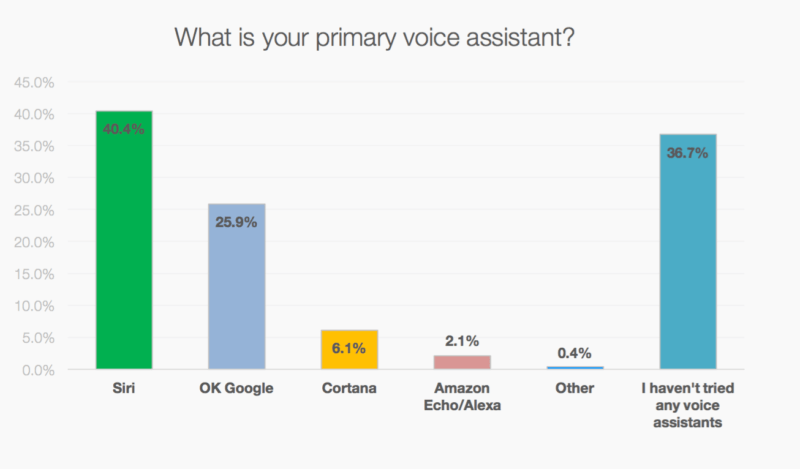Businesses are all vying to make their mark on search results pages through Search Engine Optimization Strategies. SEO is vital for attracting Internet users’ attention. But now, one strategy has gained much traction — Voice Search. There are multiple reasons why Voice Search is important for SEO.
The technology is making waves in the SEO landscape, though its origins date back to 1952. However, time (and innovations) marched on, and now businesses and Digital Marketers can take advantage of Voice Search for Search Engine Optimization.
Not only was Voice Search one of the more crucial SEO Trends in 2022, but it’s also vital for SEO in 2023. Voice Search has an impact on consumer behavior, which means brands should know how to optimize their content and pages for it.
Why Voice Search is Important for SEO
Due to its widespread usage, mobile emerged as a key player in gaining more organic traffic. But now, it’s Voice Search’s time to shine, as proven by the fact that “approximately seven out of ten consumers,” or 71%, prefer using voice queries over typed ones.
This technology will become even more popular since you won’t have to manually type a query when relying on a Voice Assistant. Nowadays, people have a preferred Voice Assistant too!

Source: Search Engine Land.
Again, most people prefer Voice Search as they can utilize it without needing to type or see their questions. This is perfect for people who don’t have their vision or hands available at the moment, such as when driving or otherwise on the go.
Additionally, several households have adopted personal Voice Assistant devices like Google Home and Amazon Echo, which has increased the technology’s usage in a home setting. Users can get information from them while handling chores or tasks without pausing their actions.
As Voice Search technology becomes more prominent, so will consumers’ reliance on hands-free search and mobile device usage.
How Voice Search Works
Voice Search yields faster search results while eliminating the need to type a query. However, the Personal Assistants who use this technology don’t work like your standard search results pages.
For one, Voice Search only provides a single answer to a spoken query rather than an entire page’s worth of results. It’s similar to the Google Quick Answer Box or Featured Snippet, which appears at the top of organic search results without needing to be clicked.
Voice Search devices have different information sources, not just search engines like Google. Though this is advantageous for Internet users, this does mean that marketers must consider these many sources when optimizing for SEO.
For instance, if a consumer searches for a product, Voice Search will fetch results from various eCommerce stores.
How to Optimize Your Business Site for Voice Search
Traditional SEO optimization is necessary for any business. But Voice Search is an emerging strategy that can improve your business’ online presence. So, here’s how marketers can optimize for Voice Search:
Do Keyword Research for Voice Queries.
Voice Search yields results immediately via Featured Snippets, so marketers must tap into the right keywords to get your answers ahead of their competitors. After all, Google provides Featured Snippets or knowledge graphs to people who use Voice Search.
Of course, ensuring your website has a high Domain Rating is one way to accomplish this. However, using Long-Tailed, Voice Search-friendly Keywords is a critical part of optimizing content for SEO.
Marketers must adjust existing keyword strategies for Voice Searches. Keywords in Voice Search questions are conversational. So, they’re spoken in complete sentences, which are longer and more specific than text queries. Additionally, you need to find queries containing the following question words:
- Who;
- What;
- Where;
- When;
- Why; and
- How.
The great thing about question keywords is they have clear Search Intent. In addition to the keywords mentioned above, you can also add filler words to construct a full conversational query, including:
- I;
- Me
- The;
- Of the;
- To;
- For, etc.
Watch Out for Interpretation Errors.
Though Voice Search technology is excellent, a device can misinterpret voice queries. So, when developing your Voice Search optimization strategy, you carefully consider what misinterpretations a device might make regarding your queries. Who knows, you might even be able to create new opportunities from these errors!
Utilize Selected Query-Related Keywords in Your Content.
After finding the ideal keywords for Voice Search queries, you must use those to optimize your content for Search Intent! It’s the best way to ensure Passage Ranking and have your content appear on the appropriate search results pages.
Firstly, you must add chosen Voice Search keywords into your headings. When it comes to content, you must create an answer that responds to that question. After all, people ask complete questions when doing Voice Searches. Don’t forget to ensure that your optimized content is informational and well-written.
Create Content for Conversational Queries.
The best way to develop a Content Marketing Strategy for Voice Search is to tailor parts of your copy for these questions. To create SEO-optimized content for Voice Search, you need content that answers conversational queries. A Frequently Asked Questions page is a great way to create such content.
So, you need to create concise, human-sounding paragraphs. You should also write it like you’re having a natural conversation. So, be less formal, avoid jargon, and use contractions.
Casual searchers will appreciate search results that immediately answer the query, then follow it up with the necessary context. Overall, your optimized answer shouldn’t exceed 30 words.
Add a FAQ Section to Your Website.
As mentioned earlier, question keywords are great for Voice Search since they have clear Search Intent. So, you can incorporate them into your site’s Frequently Asked Questions section!
Most Voice Searchers need immediate, short answers to their queries, which you can naturally provide with your FAQ section. You can add these sections to your business website, as they offer value to searchers. Not only that, but you can even include links to related web pages in your answers!
Preparing Your Website for Mobile Search.
Mobile Devices are essential to Voice Search optimization. Thus, part of optimizing for the Voice Search means optimizing your site for mobile. As a result, your business website should be responsive and load in seconds to keep interested searchers on your pages. Additionally, not only should you have attractive Mobile UI and UX but also exciting content too.
Optimize Your Content for Alternate Search Sources.
Marketers should consider alternative sources for answers and optimize their content accordingly. So, you must watch out for the sources most relevant to your niche or industry. It’s vital to start monitoring them now, as Voice Search is still gaining traction with consumers.
Source: Search Engine Land.
Add Context to Content with Schema Markup.
Of course, using Schema Markup is part of optimizing your pages for Featured Snippets. Thus, you can use it to optimize for Voice Search! So, your business site must have a straightforward navigational structure. This will ensure that search engines can find and understand your content.
Schema Markup can highlight questions in your FAQ section, which can improve your content’s visibility to search engines. Because it boosts your chances of having your content appear as a Featured Snippet, it becomes visible also to Voice Searchers.
Use “Near Me” Queries to Get Searchers’ Attention.
Near Me Searches are great for both Local SEO and Voice Search. You can incorporate time-sensitive keywords into “Near Me” queries, too. Since Voice Search pulls information from various sources, it allows you to tap into local citations. You should also use your Google Business Profile to improve your chances of getting noticed by Voice Searchers.
Final Thoughts
A business can gain a lot of success from tapping into Voice Search. Again, its queries contain the words such as how, where, what, etc. After all, people who utilize Voice Search will input complete questions rather than keywords.
As Voice Search technology progresses, people will continue to use proper questions, rather than vital keywords, to find answers to their questions. Not only that, but conversational questions require conversational responses.
There are plenty of other ways marketers can optimize their content for Voice Search, including:
- Adding question- or filler words to create Long-Tailed Keywords.
- Using a mobile-optimized site design.
- Creating an optimized FAQ Section
- Using Schema Markup to make content more visible to searchers.
- Utilize Near Me Queries

